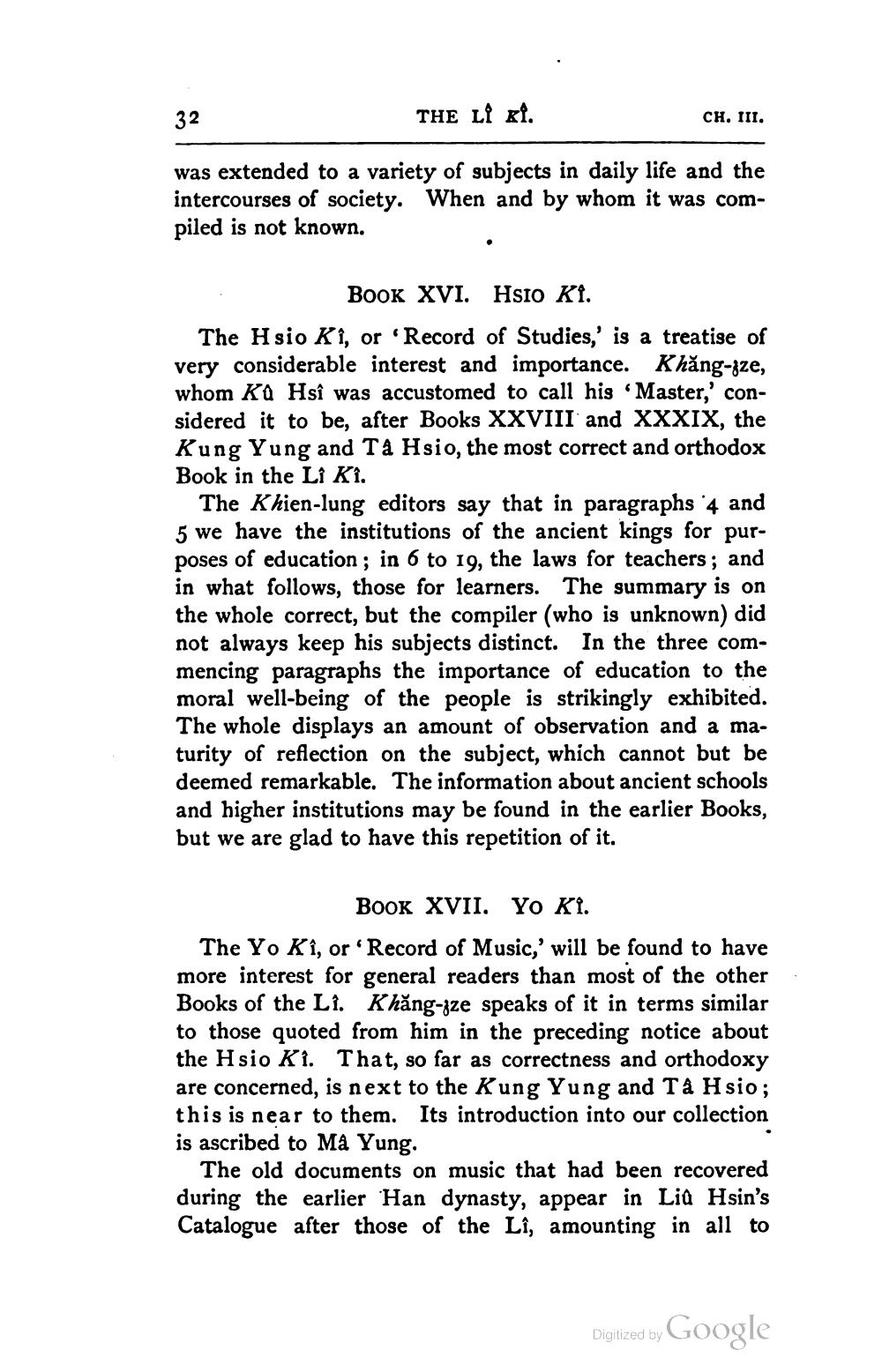________________
32
THE LÎ ki.
CH, III.
was extended to a variety of subjects in daily life and the intercourses of society. When and by whom it was compiled is not known.
BOOK XVI. Hsio Ki. The H sio Ki, or Record of Studies,' is a treatise of very considerable interest and importance. Khăng-gze, whom KU Hsî was accustomed to call his 'Master,' considered it to be, after Books XXVIII and XXXIX, the Kung Yung and T8 Hsio, the most correct and orthodox Book in the Li Ki.
The Khien-lung editors say that in paragraphs 4 and 5 we have the institutions of the ancient kings for purposes of education; in 6 to 19, the laws for teachers; and in what follows, those for learners. The summary is on the whole correct, but the compiler (who is unknown) did not always keep his subjects distinct. In the three commencing paragraphs the importance of education to the moral well-being of the people is strikingly exhibited. The whole displays an amount of observation and a maturity of reflection on the subject, which cannot but be deemed remarkable. The information about ancient schools and higher institutions may be found in the earlier Books, but we are glad to have this repetition of it.
Book XVII. YO Ki. The Yo Ki, or 'Record of Music,' will be found to have more interest for general readers than most of the other Books of the Li. Khăng-gze speaks of it in terms similar to those quoted from him in the preceding notice about the H sio Ki. That, so far as correctness and orthodoxy are concerned, is next to the Kung Yung and Tà H sio; this is near to them. Its introduction into our collection is ascribed to Mà Yung.
The old documents on music that had been recovered during the earlier Han dynasty, appear in Lid Hsin's Catalogue after those of the Lî, amounting in all to
Digitized by Google




